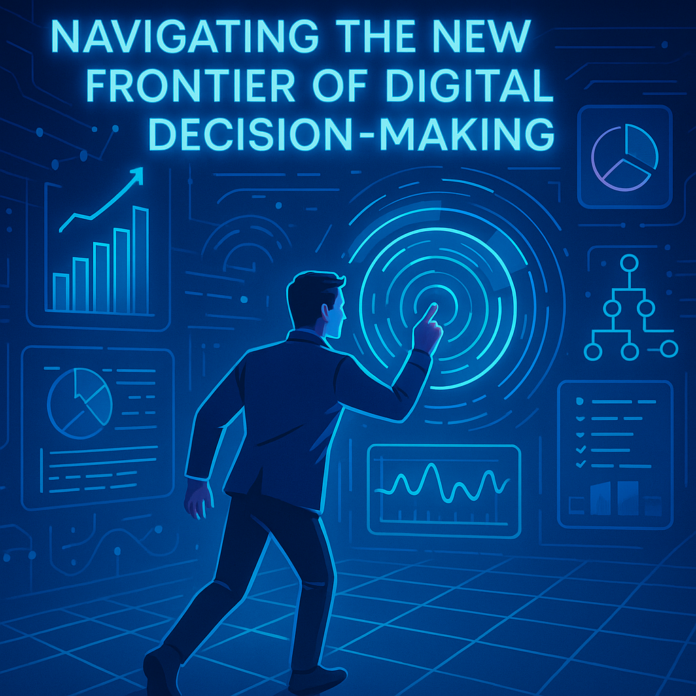As technology becomes increasingly embedded in the day-to-day operations of modern enterprises, one trend continues to reshape how businesses scale: intelligent automation. No longer confined to rule-based systems, automation has begun to evolve into a sophisticated, adaptive ecosystem capable of mimicking human-like reasoning and responding to complex, real-time scenarios.
This evolution is not just about doing tasks faster—it’s about making systems smarter. At the heart of this transformation is a subtle but crucial shift: businesses are no longer just automating processes—they’re enabling digital workers to think, decide, and collaborate.
From Process Automation to Autonomous Agents
In the past, automation meant scripting repetitive actions or building workflows that followed predefined logic. While effective in static environments, such approaches struggle to cope with today’s dynamic business needs. Markets shift. Customer behaviors evolve. Regulatory demands fluctuate. Static bots, no matter how optimized, simply can’t keep up with this level of change.
That’s where new-generation tools come into play—capable of designing agents that are not only automated but also intelligent. One such advancement is the emergence of platforms offering AI agent builder capabilities. These platforms allow developers and business analysts alike to create digital agents that can independently interpret data, execute tasks based on real-time inputs, and escalate exceptions when human judgment is necessary.
The implications are significant: instead of merely reducing costs through automation, companies can now improve decision quality, enhance scalability, and achieve operational resilience—all by extending their workforce with cognitive agents.
Rethinking the Role of Digital Labor
Incorporating AI into automation is not about replacing employees—it’s about augmenting their capacity. Digital agents can take over the mundane and the routine, freeing human talent to focus on creativity, strategy, and relationship-building. For instance, in customer service environments, AI-powered agents can triage inquiries, understand context, and route conversations to the appropriate human expert when necessary.
Moreover, these agents can operate 24/7, across geographies, without fatigue. They learn from previous data, adapt to new conditions, and ensure that decisions are informed by the latest available information—something that would be almost impossible for human teams to maintain at scale.
And thanks to platforms that incorporate features like an AI agent builder, organizations no longer need massive technical teams to deploy these capabilities. Business leaders can define intent, train models, and deploy agents that align with organizational goals—all without deep coding experience.
The Strategic Payoff of Adaptive Systems
Organizations that invest in intelligent agent infrastructure are already reaping benefits beyond efficiency. Predictive maintenance in manufacturing, real-time fraud detection in finance, and proactive supply chain adjustments in logistics are just a few examples where intelligent agents are driving proactive, data-led operations.
These use cases illustrate the value of digital agents not as task-doers, but as decision-partners. Their ability to reason, learn from outcomes, and refine processes leads to better accuracy, faster resolutions, and ultimately, higher customer satisfaction.
One key advantage is the continuity they provide. In times of disruption—whether due to workforce shortages, geopolitical shifts, or economic downturns—intelligent agents ensure that business-critical functions remain uninterrupted. And because they’re built to evolve, they help businesses stay relevant and agile in the face of change.
Building a Culture of Intelligence
Adopting intelligent automation isn’t just a technological move—it’s a cultural one. Teams must learn to collaborate with their digital counterparts, leveraging their insights and understanding how to direct their capabilities. Training staff to interpret AI outputs, assess risk, and make informed decisions alongside digital agents becomes critical.
To ease this transition, many businesses are embedding cross-functional centers of excellence (CoEs) that combine IT, operations, and business strategy. These teams not only manage AI integration but also define the ethical guidelines, data governance models, and performance metrics required to ensure responsible automation.
The result is an organization that doesn’t just use automation—but one that operates intelligently.
Future-Proofing Through Modular Innovation
As more businesses adopt a modular approach to automation, the flexibility of intelligent agents becomes even more valuable. Unlike rigid automation tools, digital agents can be repurposed across departments and scaled quickly as needs evolve.
Think of a finance team developing an agent to analyze cash flow patterns—once refined, that same logic can be adapted by procurement to forecast vendor payment risks, or by operations to plan inventory cycles.
The key is interoperability. Leading platforms ensure that agents can plug into multiple systems—ERPs, CRMs, analytics tools—without requiring major architectural overhauls. And with continued innovation around natural language processing, sentiment analysis, and machine learning, these agents become more intuitive and effective over time.
That’s why the ability to configure and customize with tools like an AI agent builder is gaining traction among forward-thinking enterprises.
Final Thoughts: Automation as an Evolution, Not an Endpoint
It’s tempting to think of automation as a finish line: you automate a task, and it’s done. But the real journey is just beginning. With the rise of intelligent agents, businesses are entering an era where automation becomes less about control and more about collaboration.
The winners will be those who treat automation as a continuously evolving partnership between human creativity and machine intelligence. By building digital agents that adapt, reason, and respond—organizations aren’t just saving time. They’re rewriting how decisions are made, how services are delivered, and how value is created.
In a world defined by speed and complexity, intelligence—not just automation—will be the defining edge.
